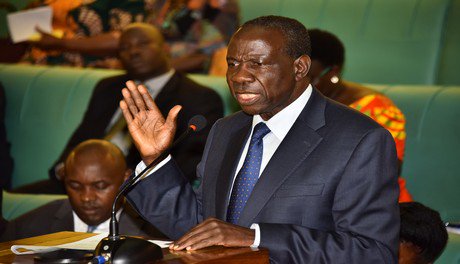
KAMPALA – The Ministry of Finance, Planning and Economic Development has confirmed that Uganda is on the verge of losing five properties in Kenya with their leases expiring soon.
The government’s revelation is contained in a report on the status of the properties in Kenya under the management of Uganda Property Holdings Limited (UPHL) after MPs rejected Government statement on the commemoration of 20years of the East African Community (EAC).
The statement read in part, “Save for five (5) properties which ore left with 5-6 years, all the other properties have more than 20 years left of their lease term. All the properties under the management of UPHL are safe, property rates for them are fully paid to the relevant authorities on time and there are no legal issues or cases involving the same.”
Government also revealed that the threw in doubt the chance to have the properties revert back to Uganda after the enactment by Kenya government in 2016, The Land Laws (Amendment) Act, 2016 which amended the Kenya Land Act, 2002 with Section 47 and Section 49 (13) which are likely to affect Uganda’s operations in Kenya.
Section 47 restrains an individual who is not o Kenyan citizen, a government of a country other than Kenya or a political subdivision of a country other than Kenya or an agency of such a country from owning land that is within a radius of 25 kilometers from the inland national boundary or within the first and second-tier from the high watermark of the Indian Ocean.
Section 49(13) prohibits non-Kenyan citizens or Governments other than Kenya to apply for a renewal of the lease. Foreign governments, individuals or companies do not have a right to renew on an expired lease.
When the Ministry of Finance sought the opinion of the Attorney General William Byaruhanga, regarding the new law in Kenya, the Attorney General opined that Kenya is a sovereign State with on unhindered right of self-determination under international law.
He added that Section 47 of the Kenyan Land Amendment Act does not entirely prevent ineligible persons; foreigners or foreign governments from acquiring interests in controlled land.
He said that the amendment simply and only requires that transactions in controlled land can only proceed with prior written approval of the Cabinet Secretary and that in considering on application for approval, the Cabinet Secretory must seek approval of the relevant authorities.
Byaruhanga also argued that under common law jurisdictions (including Uganda and Kenya), non-citizens cannot own land in perpetuity but can obtain leasehold interest, the maximum term, therefore, being 99 years.
He argued that the above provision is acceptable, fair and in order and there is no need for Uganda to contest the provision as discriminatory.
UPHL owns twenty-three (23) properties in Kenya-Mombasa and the properties are owned on leasehold terms and currently have running leases. Of the above mentioned 23 properties, 11 are warehouses; one is a car park, 2 office blocks, 3 commercial blocks, 4 residential houses, and two yards.
The Ministry revealed that all the properties in Mombasa are developed, have running leases and also are being rented out of competitive rates in Mombasa and that all the properties are titled and UPHL is in custody of the Certificate of Titles with no title mortgaged and that the company has no single loan from any bank.





